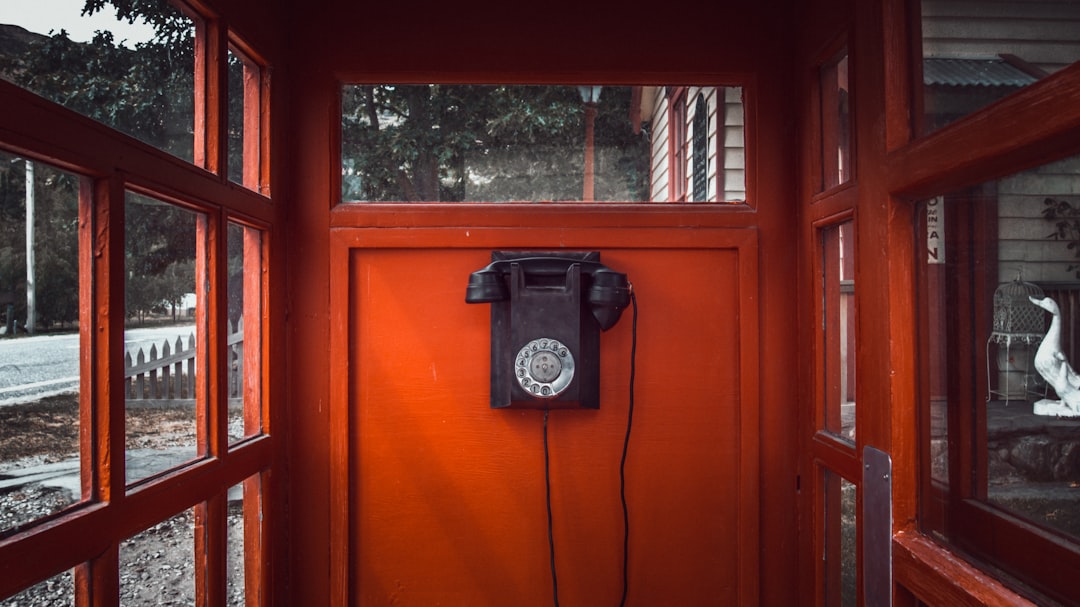In Connecticut, robocalls and unsolicited marketing calls are regulated under the Connecticut General Statutes § 42-136a et seq. to protect residents from nuisance and spam calls. Violations carry severe penalties, and victims can consult specialized spam call lawyers or law firms in Connecticut for guidance and compensation. These professionals help navigate state and federal anti-spam laws, including the CT Consumer Protection Act and TCPA, and recover statutory penalties of up to $10,000 per call. Key strategies include registration on the National Do Not Call Registry and using call-blocking tools.
“Tired of relentless robocalls inundating your Connecticut home? You’re not alone. Unwanted phone spam is a prevalent issue, impacting millions. In this comprehensive guide, we explore the extensive reach of robocalls and how Connecticut’s strict spam call laws offer recourse.
From understanding the legal framework to uncovering the penalties for violations, we empower consumers with knowledge. Discover the critical role a dedicated spam call lawyer in CT plays in holding offenders accountable. Learn practical steps to take if spammed, and explore effective strategies to silence these nuisances once and for all.”
- Understanding Robocalls and Spam Call Laws in Connecticut
- The Impact of Unwanted Robocalls on Consumers
- Legal Framework for Addressing Spam Calls in Connecticut
- Statutory Penalties for Violations Against Connecticut's Spam Call Law
- The Role of a Spam Call Lawyer in Connecticut
- Choosing the Right Spam Call Attorney or Law Firm in CT
- Steps to Take if You've Been a Victim of Spam Calls
- Effective Strategies to Combat Robocall Nuisance
Understanding Robocalls and Spam Call Laws in Connecticut
In Connecticut, robocalls and unsolicited phone marketing are regulated to protect residents from nuisance calls and spam. The Connecticut General Statutes (CGS) § 42-136a et seq. outline the state’s spam call laws, which include restrictions on automated dialers, prerecorded messages, and certain practices by telemarketers. These laws aim to safeguard consumers’ privacy and peace of mind from unwanted phone calls.
If you’ve been a victim of persistent or illegal robocalls in Connecticut, it’s advisable to consult a spam call lawyer Connecticut or spam call attorney Connecticut. Spam call law firms Connecticut specializing in telecommunications law can guide you through your rights and options for recovering statutory penalties from violators. Spam call lawyers Connecticut and spam call attorneys Connecticut are equipped to navigate the complexities of these laws, ensuring that individuals and businesses are held accountable for breaking them.
The Impact of Unwanted Robocalls on Consumers
Unwanted robocalls have become a pervasive and frustrating issue for consumers in Connecticut and across the nation. These automated telephone calls, often advertising products or services, can be intrusive and disruptive, causing significant annoyance and distress to recipients. Many individuals find themselves bombarded with spam calls daily, making it difficult to distinguish legitimate communications from unwanted marketing efforts. The constant noise not only wastes people’s time but also invades their personal space, leading to increased stress and a sense of privacy invasion.
Consumers who endure excessive robocalls may face financial losses, as some calls promote fraudulent schemes or charge unnecessary fees. Moreover, the psychological impact cannot be overlooked; frequent spam calls can contribute to heightened anxiety and a constant state of alertness. This issue has prompted many Connecticut residents to seek legal recourse, turning to reputable spam call lawyers and law firms who specialize in representing victims of such nuisance calls. By holding offenders accountable and recovering statutory penalties, these legal professionals help alleviate the burden on consumers and promote compliance with anti-spam call legislation in Connecticut.
Legal Framework for Addressing Spam Calls in Connecticut
In Connecticut, addressing spam calls, also known as unsolicited or unwanted telephone marketing calls, is governed by a robust legal framework designed to protect consumers from intrusive and deceptive practices. The Connecticut General Statutes (CGS) § 42-135a et seq. outlines comprehensive regulations targeting telemarketing activities, including restrictions on automated phone systems and robocalls. These laws empower consumers with the right to seek redress through various legal avenues if their privacy is invaded or they suffer financial loss due to spam calls.
Consumers in Connecticut who experience nuisance or fraudulent robocalls can file complaints with the state’s Department of Consumer Protection (DCP). The DCP investigates these complaints and has the authority to take legal action against violators, including seeking statutory penalties for each violation. Additionally, individuals who have been harmed by spam calls may choose to consult a qualified spam call lawyer or spam call attorney in Connecticut from a reputable spam call law firm. These legal professionals can guide victims through the process of filing lawsuits, seeking compensation, and ensuring that telemarketers adhere to state laws designed to curb unwanted phone marketing.
Statutory Penalties for Violations Against Connecticut's Spam Call Law
In Connecticut, violations of the state’s Spam Call Law carry significant statutory penalties designed to deter and penalize malicious or negligent telemarketers. Individuals or businesses found guilty of making or causing unsolicited telephone calls, known as spam calls, can face substantial fines. These penalties vary depending on the number of calls made, the intent behind them, and whether they were willful or not.
For each violation, a spam call lawyer or attorney in Connecticut can represent affected individuals and seek compensation through legal action. The law firm specializing in spam call cases can help recover statutory penalties that may include fines ranging from $500 to $10,000 per call, with additional damages for emotional distress caused by the nuisance calls. With their expertise, spam call lawyers Connecticut ensure that those affected by such violations have a strong legal standing to seek justice and financial redress.
The Role of a Spam Call Lawyer in Connecticut
In the battle against robocalls and spam calls, a spam call lawyer in Connecticut plays a pivotal role in safeguarding your rights. These legal professionals specialize in navigating the complex landscape of telecommunications law to help individuals and businesses recover statutory penalties for unsolicited calls. With expertise in the spam call law specific to Connecticut, they can guide clients through the process of filing complaints and pursuing legal action against offending parties.
A spam call attorney or spam call law firm in Connecticut is well-versed in the state’s regulations regarding telemarketing practices, including the Connecticut Unfair Trade Practices Act (CUTPA). They understand the intricate details of how to identify and prove violative calls, enabling them to secure compensation for victims. Their knowledge ensures that clients receive the justice they deserve and helps put an end to the nuisance of robocalls.
Choosing the Right Spam Call Attorney or Law Firm in CT
When dealing with the nuisance and financial losses caused by robocalls in Connecticut, selecting the right legal counsel is a crucial step. A skilled spam call lawyer or spam call attorney in CT can significantly impact the outcome of your case. Look for a law firm specializing in telecommunications law and having a proven track record in handling spam call-related cases. Experience matters when dealing with complex regulations and penalties associated with unsolicited calls.
The best spam call law firms in Connecticut will possess in-depth knowledge of state and federal laws, such as the CT Consumer Protection Act and Telemarketing and Consumer Fraud and Abuse Prevention Act (TCPA). They should also be adept at navigating legal complexities, negotiating settlements, or representing clients in court to recover statutory penalties for each violation. Ensure the firm you choose has a strong reputation, offers transparent communication, and is committed to delivering the best possible outcome for your robocall nuisance case.
Steps to Take if You've Been a Victim of Spam Calls
If you’ve fallen victim to spam calls in Connecticut, there are crucial steps to take. First, document every incident by noting the caller’s number and any details about the message or call pattern. This evidence can be invaluable when pursuing legal action. Next, consider blocking the number using your phone’s settings if it’s a recurring issue. Many modern smartphones offer built-in tools for managing unwanted calls.
For more persistent cases, consult with a spam call lawyer in Connecticut or a reputable spam call law firm. These professionals specialize in navigating the state’s anti-spam laws and can help you recover statutory penalties. Don’t hesitate to reach out; many firms offer free consultations. They will guide you through legal options, which may include filing a complaint with the Federal Trade Commission (FTC) or taking direct action against the spammers.
Effective Strategies to Combat Robocall Nuisance
Robocall nuisance is a significant issue in Connecticut, but there are effective strategies to combat it. For individuals who have been plagued by unwanted spam calls, consulting with a spam call lawyer Connecticut or spam call attorney Connecticut from a reputable spam call law firm Connecticut can be a game-changer. These legal professionals are well-versed in the state’s spam call law and can help recover statutory penalties for violators.
One strategy involves registering on the National Do Not Call Registry, which automatically blocks calls from known telemarketers. Additionally, using call-blocking apps or hardware filters designed to identify and block spam calls can significantly reduce the volume of unwanted communications. Encouraging communication service providers to enforce stricter regulations against robocallers is another effective approach. By combining legal action with technological solutions, residents of Connecticut can better protect themselves from this nuisance and ensure their privacy.






